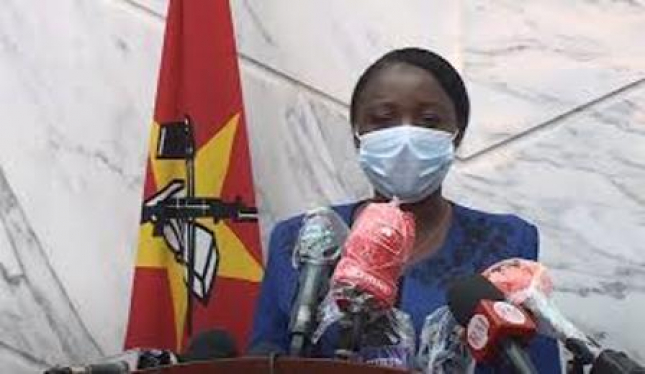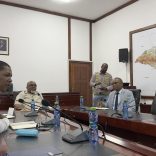Mozambique’s economy facing downturn in productive sectors
Mozambique: Government approves medium term fiscal scenario – AIM report

File photo: RM
The Mozambican government on Tuesday approved the Medium Term Fiscal Scenario (CFMP), for the 2021-2023 period.
This is a three year planning and budgeting instrument, and it envisages that, by 2023, annual state revenue will rise to 454.95 billion meticais (about 6.32 billion US dollars, at current exchange rates).
The projected revenue for 2020 is 345.38 billion meticais. Thus the CFMP forecasts an increase in revenue of about 32 per cent over a three year period.
Speaking at the end of the weekly meeting of the Council of Ministers (Cabinet), the Deputy Minister of Industry and Trade, Ludovina Bernardo, told reporters that the CFMP is intended to organise, analyse, update and present strategic options, with a focus on implementing the government’s five year programme for 2020-2024. The document, she added, will guide the allocation of resources between 2021 and 2023.
In the scenario forecast by the CFMP, Bernardo said, by 2023, the state will not be running a budget deficit “because it is necessary to guarantee budgetary balance between expenditure and the revenue that is collected”.
Asked whether the government envisages a growth in revenue with the start, in 2022, of production from the floating liquefied natural gas (FLNG) unit in Area Four of the Rovuma Basin, off the coast of the northern province of Cabo Delgado, Bernardo gave the vague reply that the CFMP only assesses the revenue to be collected “in a general context”.
Bernardo added that the government has cut its forecast for economic growth this year from 1.6 to 0.8 per cent, because of the economic impact of the Covid-19 pandemic. As from next year, growth will resume, she predicted, and will reach 3.8 per cent by 2023.
Hence this year, and probably in 2021 also, economic growth will be lower than annual population growth, estimated at 2.8 per cent by the 2017 population census.
The Council of Ministers also approved a set of regulations governing the Law on Disaster Risk Management and Reduction, passed earlier this month by the Mozambican parliament, the Assembly of the Republic.
The regulations, said Bernardo, in addition to establishing rules and procedures for the application of the law, seek to improve the interventions made by the government and other bodies in disaster management.
She claimed it would strengthen the government’s coordination with other stakeholders when natural disasters strike.












Leave a Reply
Be the First to Comment!
You must be logged in to post a comment.
You must be logged in to post a comment.